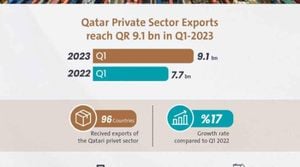Delhi Assembly sessions were marred by chaos recently as 21 legislators from the Aam Aadmi Party (AAP) were suspended following incidents of unruly behavior during the Lieutenant Governor's address. The assembly witnessed protest and outbursts which led to the suspension of prominent leaders, including Atishi, the opposition leader, along with senior figures such as Gopal Rai and Imran Hussain.
The turmoil erupted as the Lieutenant Governor, Vinay Kumar Saxena, commenced his speech, addressing the current government's plans and highlighting key governance issues. Opposition members began chanting slogans, protesting against the alleged removal of images of Dr. B.R. Ambedkar and Bhagat Singh from the Chief Minister’s office. Amidst the uproar, Speaker Vijender Gupta repeatedly urged the assembly to maintain decorum; nonetheless, the protest continued, prompting the Speaker to announce the suspension.
The actions were proposed by Delhi Minister Parvesh Sahib Singh, addressing the assembly with the assertion, "We cannot allow the proceedings to be disrupted by such behavior". Despite the AAP's defense of their actions, the motion to suspend was passed unanimously by the BJP members present in the assembly. This led to heightened tensions and protests outside the assembly by the suspended lawmakers, expressing their outrage over the decision.
During the suspension announcement, the Lieutenant Governor stated the government would focus on six pillars, namely corruption-free governance, women empowerment, cleanliness of the Yamuna, rejuvenation plans for Delhi’s rivers, and access to clean drinking water. The discussions surrounding these plans were overshadowed by the session’s disruptions, which have extended the length of the assembly to two additional days.
Adding to the drama, the Delhi assembly session also revisited the controversial excise policy as presented by Chief Minister Rekha Gupta, which came under scrutiny following the recent CAG report addressing allegations of irregularities. Arvind Singh Lovely, a BJP legislator, remarked on the absence of CAG reports from previous years, noting, "It is embarrassing for Delhi if we reflect on the negligence shown over the past decade." These comments underscored discontent toward the management of the assembly and the government.
Following these comments, the assembly buzzed with discussions on the CAG report. Amid the political rhetoric, AAP leaders alleged vandalism and disrespect to the late leaders’ legacies as they condemned the assembly leadership for suspending them instead of engaging with their concerns. Atishi commented, "We were highlighting the mismanagement instead of receiving suspensions for our voices." This has raised questions about governance and representation within the assembly.
Minister Parvesh asserted the AAP legislators' behavior was unacceptable during the session, stating, “What occurred today was simply out of line.” Many within the BJP echoed his sentiments, calling for the opposition to focus on developmental matters instead of political point-scoring. The situation has led to public discussions reflecting on the role and conduct of assembly members.
Despite the setbacks, the session will press on discussions concerning plans to restore and maintain infrastructure within Delhi, promising transparent and timely intervention when it involves taxpayers' money. The session's extended days have been deemed necessary by the assembly leadership, aiming to address policies and reports thoroughly, albeit with the continuous shadow of protests likely to loom over proceedings.
Reactions from the AAP have emphasized the necessity of holding the government accountable instead of being subdued by suspensions. The wider public is watching closely, gauging how these confrontations will play out moving forward, especially as the CAG report will likely lead to significant political repercussions. Will the assembly return to decorum or continue to be marked by dramatic disruptions? Only time will tell.



